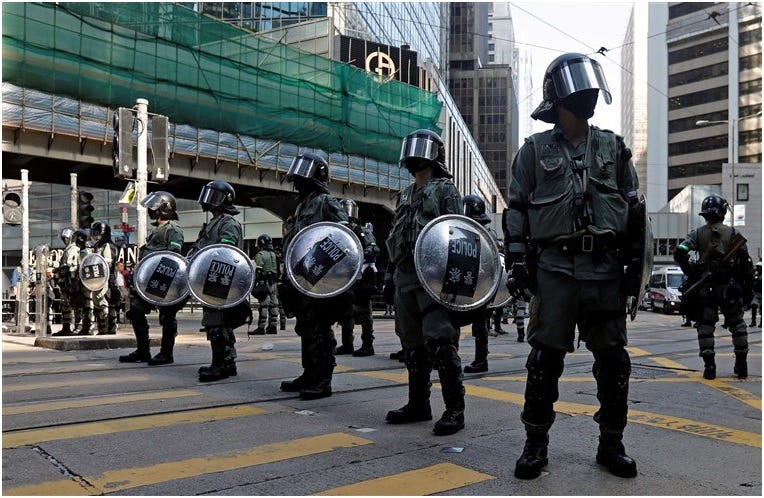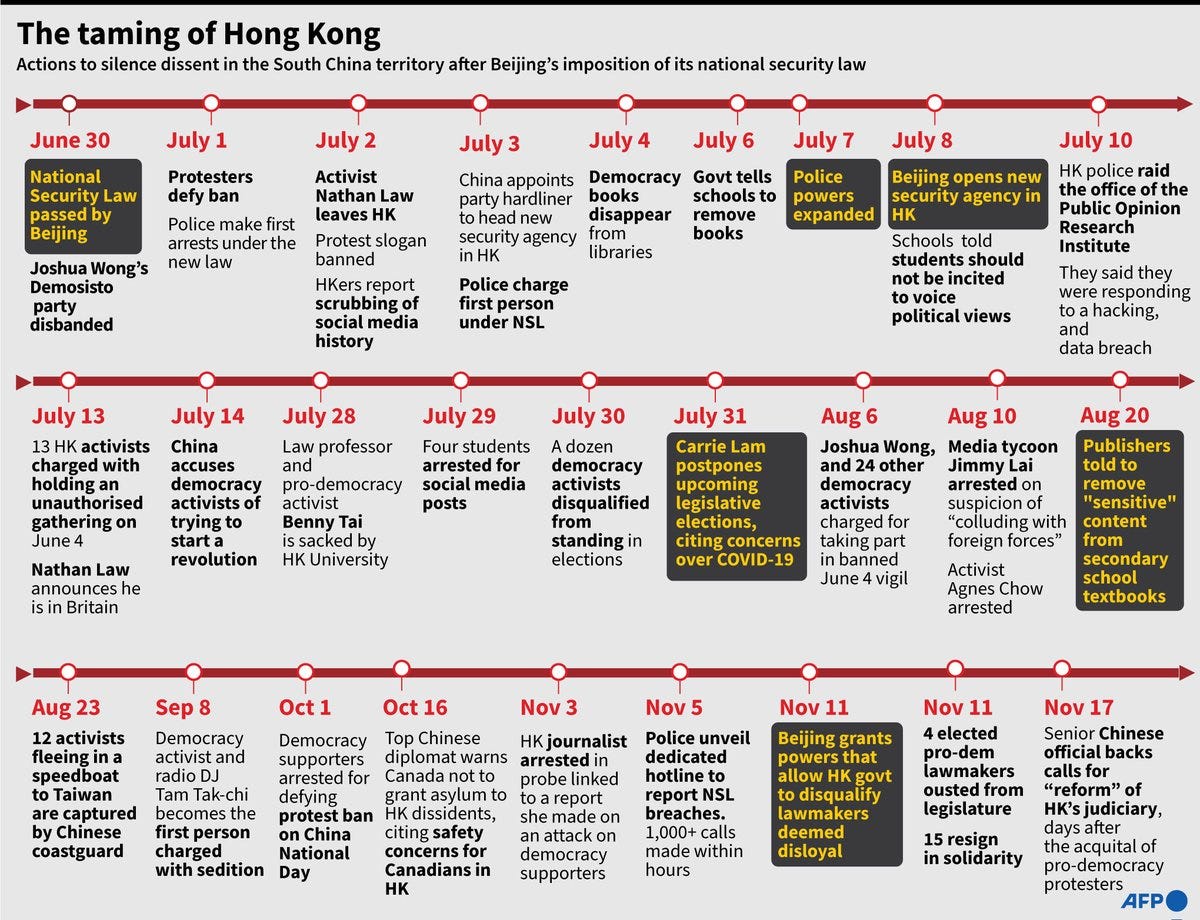[ad_1]

Hong Kong is being silenced as more go to jail, more flee to asylum in other countries, businessmen keep their mouths shut and even journalists are wary of whom they talk to – and who will talk to them.
The months of protest that brought hundreds of thousands of people to the streets in defiance of the implementation of China’s crackdown have come to a complete stop. The city, so vibrant — and sometimes violent – in its rebelliousness, is eerily silent. Nonetheless, the process of clamping down on freedom of thought as well as speech is not yet done, at least according to the head of Beijing’s Liaison Office in Hong Kong, Luo Huining.
Although, according to Luo, the draconian National Security Law imposed by Beijing is “starting to show its power,” better systems are needed to ensure that people comply with it “of their own free will.”
In other words, not only must action and speech be curtailed but minds cleansed of ideas that might oppose those of the party and state, so that obedience is instinctive rather than reaction to fear. Pro-democracy books have been purged from the libraries and teaching about democracy has been removed from the schools. Here is an Agence France Presse timeline of the Anschluss that descended on Hong Kong over the past six months.

Two specific events this past week highlighted the ratcheting up of fear. On December 3, outspoken pro-democracy businessman Jimmy Lai, aged 73, was denied bail on the grounds that he is a flight risk when he was accused of defrauding the government. Lai is the proprietor of Apple Daily, a highly popular and staunchly independent newspaper. The charge against him appeared to be an attempt by the government to make a mountainous criminal charge over something which normally would be regarded as a civil matter – the lease of the building where Apple and its stablemate Next Digital are based.
Such extreme charges were especially stunning coming from a Justice Department headed by lawyer Teresa Cheng. Shortly before taking office in 2018, it was revealed that her house and an adjoining one belonging to her engineer now husband had no less than 10 illegal additional structures. She was not prosecuted.
The charges against Lai and his detention rather than bail may well be only the beginning of cases against him, possibly including under the National Security Law in relation to his interactions with pro-democracy figures in the west.
Lai’s incarceration followed student activist Joshua Wong being sentenced to 13 months jail for his role in a 2019 demonstration, with two colleagues given lesser sentences. All had pleaded guilty because although peaceful assembly is supposed to be allowed in Hong Kong, in practice most pro-democracy events have come to be deemed illegal.
On the same day as Lai was moved to a remand prison, former pro-democracy lawmakers Ted Hui announced from Denmark that he would not be returning to Hong Kong and was settling in Britain. Hui faced various charges related to his activities in the Legislative Council itself as well as outside. He was one of nineteen pro-democracy legislators who resigned last month follow the arrest of four of their colleagues.
The flight of Hui followed the departure of other activists to Taiwan and elsewhere although not all have made it. In August, 12 Hong Kong residents were arrested by Chinese naval personnel who fled the city heading for Taiwan. They have since been held in Shenzhen and another nine were later arrested in Hong Kong on charges of helping them to flee, calling up images of Eastern Europeans who were shot or arrested as they attempted to flee their grim economic gulags..
Such departures are seeing pro-government organs putting pressure on magistrates not to grant bail. With several thousand arrested in 2019 still awaiting formal charges, the exodus of such people seems certain to be speeded up. September saw a record number of issuances of British National Overseas (BNO) passport which enable holders to stay in Britain for five years, during which time they can work towards permanent residence and citizenship.
Beijing may view such departures as a “draining of the liberal swamp” but the exodus of young talent will do major harm to Hong Kong itself, as well as its relationship with the outside world.
This article is among the stories we choose to make widely available. If you wish to get the full Asia Sentinel experience and access more exclusive content, please do subscribe to us.
[ad_2]
Source link